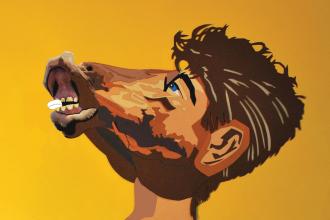Re: Pharma interventions for TBI—Letter 1
As consultation-liaison psychiatrists who work at the major trauma centre in BC, Vancouver General Hospital, we have some concerns regarding the information provided in the recent article by Talsky and colleagues ["Pharmacological interventions for traumatic brain injury," BCMJ 2011;53:26-31]. Their article outlined a number of pharmacological approaches for managing sequelae of traumatic brain injury.
The medication they recommended for the acute treatment of agitation was amantadine. This medication is not usually sufficient to treat patients who have significant behavioral difficulties acutely following severe brain injury. In clinical practice other medications such as clonidine and atypical antipsychotic medication (e.g., quetiapine) are often necessary. Antipsychotic medication may also be required for patients who have chronic agitation that is uncontrolled by the medications listed in the article.
The important issue in treating patients following severe brain injury is that the safety of the patient, other patients, staff, and family members be assured. Patients often develop agitation and aggression during the initial weeks following their brain injury when their drive state is increasing but their insight and judgment continue to be poor.
The medication recommended by Talsky and colleagues, amantadine, is not sufficient to address the impulsive, violent behavior that can occur. We do agree that high-potency D2 blocking agents, such as haldol, should be avoided due to the increased risk of extrapyramidal side effects in this patient population.
Another concern that we have with the review article was the recommendation for using amitriptyline in minimally conscious states. Amitriptyline is a sedating tricyclic antidepressant medication with strong anticholinergic side effects. Talsky and colleagues correctly indicated in their article that deficits in acetylcholine can occur in patients following brain injury.
Giving anticholinergic agents, such as amitriptyline, can lead to a further worsening of concentration and attention and can exacerbate delirium. Although amitriptyline has been used to reduce agitation following brain injury, it is not recommended due to the anticholinergic load.
We occasionally use low-dose tricyclic antidepressant medication for patients who have insomnia, particularly when their insomnia is associated with pain. However, we prefer to use nortriptyline because it has less anticholinergic side effects than amitriptyline. In our extensive experience amitriptyline is often poorly tolerated.
Overall, the article by Talsky and colleagues provided a good overview of some of the psychotropic agents that may be considered when treating patients who have traumatic brain injury. However, antipsychotic medications continue to play an important role in reducing severe agitation in brain injured patients when other medications (e.g., amantadine) are ineffective.
—Stephen D. Anderson, MD
—Shao-Hua Lu, MD
Vancouver

